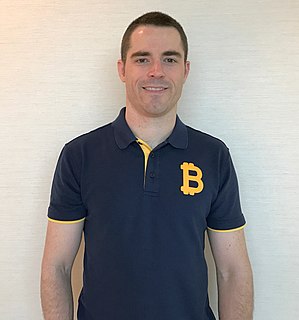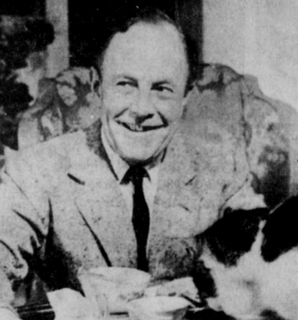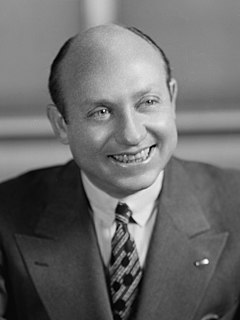A Quote by Dan Ariely
Ownership is not limited to material things. It can also apply to points of view. Once we take ownership of an idea - whether it’s about politics or sports - what do we do? We love it perhaps more than we should. We prize it more than it is worth. And most frequently, we have trouble letting go of it because we can’t stand the idea of its loss. What are we left with then? An ideology - rigid and unyielding.
Related Quotes
I have talked to more people who are in politics who have said to me, "[House of Cards] is closer than you can imagine. It's the most accurate description of how politics actually works that we've ever seen." I mean, West Wing - beautiful, wonderful idea of how democracy should work. But I've had more people in politics say they think House of Cards is closer. I - don't know whether to take that as a compliment or a sad state of affairs.
One of the criticisms I make is to what I refer to as more of a libertarianish right... This whole idea of personal autonomy, well, I don't think most conservatives hold that point of view. Some do. They have this idea that people should be left alone, be able to do whatever they want to do... Well, that is not how traditional conservatives view the world...
Much more than trying to focus on the battlefield of the war, it was the central place that German doctors occupied within Nazism, the omnipotent and insane idea of wanting to generically modify an entire nation. This idea was not on the outskirts of Nazi ideology, it was the heart of movement, that's what intrigued me. Mengele is the most extreme expression of this idea.
Life in the country teaches one that the really stimulating things are the quiet, natural things, and the really wearisome things are the noisy, unnatural things. It is more exciting to stand still than to dance. Silence is more eloquent than speech. Water is more stimulating than wine. Fresh air is more intoxicating than cigarette smoke. Sunlight is more subtle than electric light. The scent of grass is more luxurious than the most expensive perfume. The slow, simple observations of the peasant are more wise than the most sparkling epigrams of the latest wit.
The idea is the least labor and capital and resources you put together and the more you accumulate the better capitalist you are. So the suggestion I will make to you is that the idea of constant accumulation, which is what America is about, what consumerism, NAFTA are about, means that you always take more than you need and you don't leave the rest. So I suggest that it is possible from an indigenous world view that capitalism is inherently out of order with natural law.
It's more important than ever to define yourself in terms of what you stand for rather than what you make, because what you make is going to become outmoded faster than it has at any time in the past. ...hang on to the idea of who you are as a company, and focus not on what you do, but on what you could do. By being really clear about what you stand for and why you exist, you can see what you could do with a much more open mind. You enhance your ability to adapt to change.
One of the proven ways of getting workers more involved with their jobs is by dovetailing employee profit-sharing and stock ownership plans with greater responsibility sharing... Trade unions in this country should... consider these arrangements much more carefully than they have up to now... Expanded employee profit participation and stock ownership would provide workers with a greater measure of economic and social independence, thus stimulating increased productivity.




































